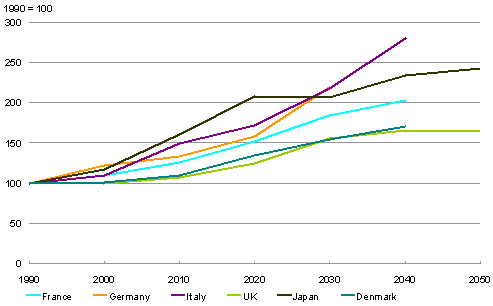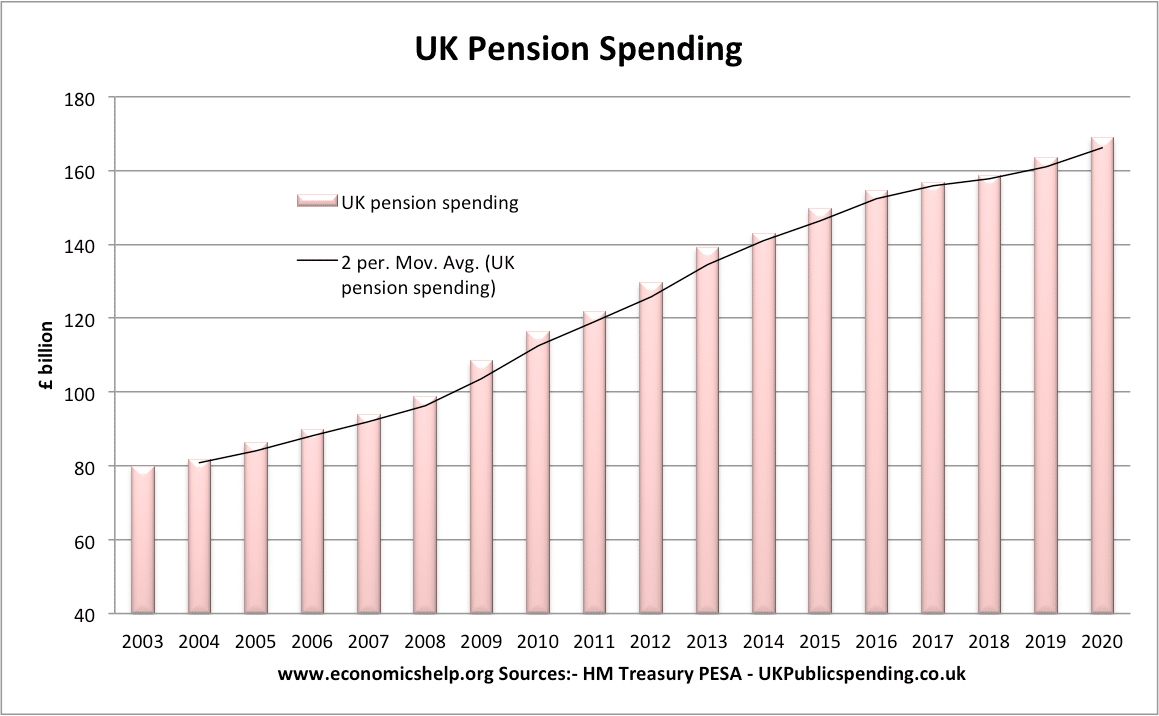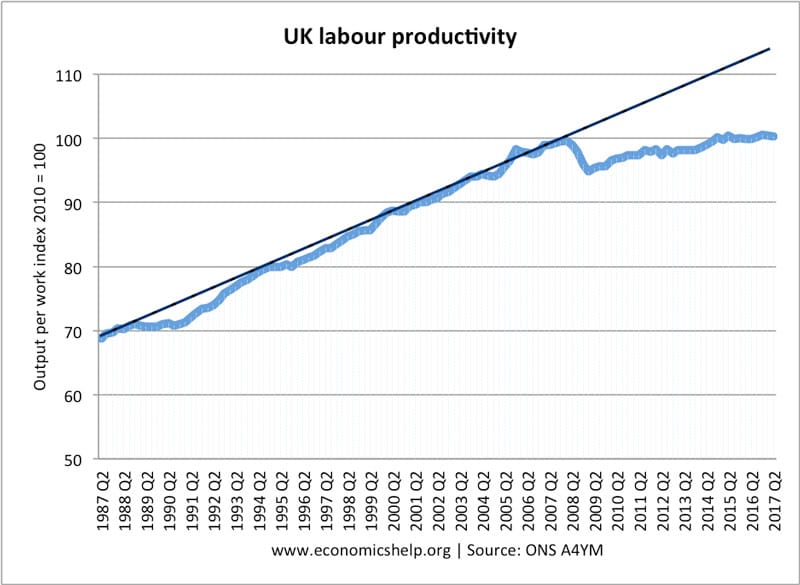Readers Question: What are the implications of a higher dependency ratio?
The dependency ratio measures the % of dependent people (not of working age) / number of working people.
Children (0-15) + Number of elderly (> 65)
————————————————
Number of working age (16-65)
In the western world, we are seeing an increase in the dependency ratio because the population is living longer. This is creating an increase in the number of people over 65 and higher dependency ratios.
Dependency Ratios in Western Europe

Implications of Higher Dependency Ratio
- Lower Tax Revenues. Retired people pay lower income tax. Therefore, the working age population has a greater responsibility to pay tax.
- Higher Government Spending. The government is committed to paying a state pension and related benefits such as a minimum income guarantee. There are also greater demands for indirect spending on retired people. People over 65 are more likely to require treatment by the NHS. Therefore, there are greater demands placed on government spending by a rise in the dependency ratio.
- Potential higher taxes. The pressures on government finances could lead to higher tax rates on a declining working population, which could create disincentives to work and reduce disposable income. The government may be forced to use collect more revenue from indirect taxes or wealth taxes.
- Lower Pension Funds. Because of the rising % of retired people, pension funds are having to stretch further than before. Many pension funds haven’t planned for the rapid rise in the dependency ratio. Combined with the credit crisis and low interest rates, the average income retired people can expect has fallen.
- Pressure to raise the retirement age. Because of the increased cost of pensions, there is pressure to raise the retirement age in both the private sector and public sector. Tesco’s recently announced it will be the first private firm in the UK to raise its pension age to 67. This is an attempt to reign in the costs and meet the pension shortfall they currently have. Raising the state pension age means people will have to work longer than before.
- Inequality. Raising the state pension age will have different effects. Some people with a substantial private pension will not be really affected. They can still choose to retire when they want. However, others with no or minimal state pension will have to work longer.
- Competitiveness. If an economy experiences a faster rise in dependency ratio that global average, it could affect its international competitiveness. With a smaller pool of workers and greater tax burden, productivity may be lower and this will lead to a decline in competitiveness.
Pension spending in the UK

Labour Market Implications
A higher dependency ratio could lead to labour shortages as firms struggle to recruit sufficient numbers of workers. Firms may have to respond by encouraging older workers to stay in work for longer. There may be an increase in ‘semi-retirement’ – where older workers stay in work part-time to supplement smaller pensions.
The impact of an ageing population may be offset by the growth of automation – which increases net productivity.
Economic Implications
A higher dependency ratio is likely to reduce productivity growth. A growth in the non-productive population will diminish productive capacity and could lead to a lower long-run trend rate of economic growth. If the government fails to tackle issues relating to a higher dependency ratio, there could be increased pressures placed on government finances, leading to higher borrowing or higher taxes which also reduce economic growth.
Since 2008, UK productivity has stagnated – falling well behind its previous trend rate. There are many other factors at work, but changes in demographics could be one factor.
Social Implications
The retired population will make up a bigger share of the population. Therefore, they will have a bigger political voice. It may require different attitudes to how we care for old people, e.g. should someone’s house be a mortgage to pay for their healthcare? Should responsibility for looking after old people fall on the state or should private charity and family play a greater role?
Related


How can increase in demand for goods and devices needed be an economic effect of high dependency ratio
What could be a positive aspect of having a high old age dependency rate?
Japan isn’t in western Europe
What are the benefits economics gain from large number of working class???
Please check your grammar fella, but increased working class will alongside increase output. Job competitiveness will also increase, which may lead to a higher skilled work force.
lol im with you on this one. You answered well and I understand what you were saying. Thank you for making that possible.-
What do you think Is the Effect of a high Dependency Ration in developed Countries? In Deceloping Countries?
1. What do you think is the effect of a high dependency ratio in developing countries?
2. Has globalization facilitated or obstructed greater labor migration?
What do you think is the effect oa a high countries? In developing countries?
Absolutelly right
how doese a high dependency ratio affect political aspect